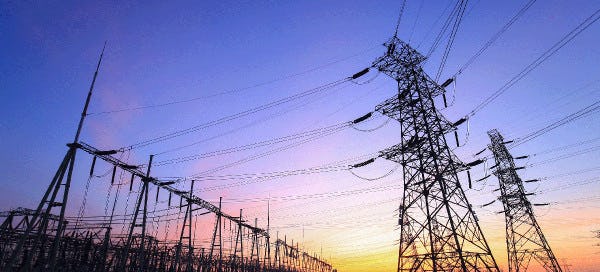Short-Term Electricity Plans for Texas
They’re growing in popularity like never before: short-term energy plans. Especially during periods of financial unpredictability, these types of plans can bring flexibility and an ability to adapt quickly to energy prices. In this article, we’ll walk through the ins and outs of short-term plans, to help you see if they are a fit for you.
What is a Short-Term Electricity Plan?
Simply put, a short-term electricity plan is an energy contract with a Retail Electric Provider that has a shorter duration – typically lasting three to six months, though they can sometimes be as short as one month. These plans are great for residents who either don’t want to commit to a long-term contract or who anticipate significant changes in the energy market that might lead to price fluctuations.
For example, if you're unsure about your future living situation or are hoping for lower energy rates in the near future, a short-term plan lets you stay flexible, without being locked into an agreement for 12 months or more. Given the unpredictable nature of energy prices – especially in Texas, where both the weather and market conditions can fluctuate dramatically – short-term plans offer you the ability to pivot quickly when better rates become available.
How Do Energy Providers Mitigate Risks in Volatile Markets?
Offering short-term plans is not without risk for energy providers. Since energy rates fluctuate with the wholesale market, there’s potential for providers to lose money if prices spike after they’ve locked in a lower rate for customers. To mitigate these risks, many providers use hedging strategies, such as purchasing energy futures to secure pricing in advance. This allows them to offer competitive rates to consumers while protecting themselves from sudden market shifts.
Providers might also change their short-term offerings in response to market volatility by adjusting the rates more frequently than they would with longer-term contracts. This way, they can respond quickly to rising or falling energy prices and avoid being caught in a difficult position if costs skyrocket.
How Short-Term Electricity Rates Fluctuate with Market Conditions
Texas has a deregulated energy market, meaning that consumers have the power to choose their electricity provider. This also means that energy prices can fluctuate based on supply and demand. For instance, during extremely hot summers or cold winters, demand for electricity spikes, leading to higher prices. On the flip side, during mild weather conditions, there can be a surplus of energy, leading to lower prices. Short-term plans allow you to capitalize on these price fluctuations if you time your switch wisely.
Common Misconceptions About Short-Term Energy Plans
One of the biggest misconceptions about short-term plans is that they’re always more expensive. While it’s true that they often come with higher per-kilowatt-hour rates than long-term contracts, this isn’t always the case. In fact, when the energy market experiences significant dips, short-term plan customers can benefit from lower prices almost immediately, whereas those locked into long-term plans might miss out on savings.
Another common myth is that switching from one short-term plan to another is overly complex or costly. In fact, many short-term plans offer no penalty for switching after the contract period ends, making it easy to move to a different plan if you find a better rate elsewhere.

How Do Short-Term Plans Compare to Long-Term Contracts?
Long-term contracts typically last for a year or more and often come with fixed rates, providing a stable, predictable energy bill. These plans are best for people who value security and don’t want to deal with the hassle of constantly shopping for new rates. Long-term contracts are also attractive when market rates are low, as they allow customers to lock in these lower prices for an extended period.
In contrast, short-term plans offer more flexibility but at the potential cost of variability in your monthly bills. Since the rates are more closely tied to the real-time energy market, you could see a slight bump in your rate when prices are high – but you could also benefit from decreases during times of lower demand or surplus energy.
Cost Comparison with Long-Term Contracts
Let’s break this down with an example. Say you lock into a 12-month contract with a rate of 14 cents per kWh. Over the course of a year, even if energy prices rise or fall, your rate remains constant. However, with a short-term plan, you might start with a rate of 13 cents per kWh for a three-month period, but after that term ends, you could face a higher or lower rate depending on market conditions. The potential for short-term savings is there, but you need to be prepared for possible increases, especially during peak demand seasons.
Benefits and Risks of Short-Term Electricity Plans
Benefits
Flexibility: With a short-term plan, you have the freedom to switch plans as market conditions change, giving you control over your energy costs
Potential Savings: During periods of lower demand or when there’s an oversupply of electricity in the market, short-term plans can offer lower rates than long-term contracts
No Long-Term Commitment: Ideal for renters or anyone who may need to move or make changes within a short time frame.
Risks
Price Volatility: Short-term plans are more susceptible to fluctuations in the energy market, so your rates can increase unexpectedly
Uncertainty: If you prefer the security of a set rate over the course of a year, a short-term plan may not provide the peace of mind you’re looking for.
Who Most Benefits from Short-Term Energy Plans?
Short-term electricity plans are best for people for whom flexibility is a priority. They are ideal for:
Renters: If you're in a lease that could end within a few months, a short-term plan ensures that you're not tied to a contract that lasts longer than your stay
People anticipating a move: If you're in the process of buying or selling a home, or considering relocating for work, a short-term plan might suit your needs
Small business owners: Those who expect fluctuating business needs or are in the early stages of business development can benefit from short-term plans
Energy market watchers: If you keep a close eye on energy market trends, a short-term plan allows you to take advantage of dips in pricing.
In these cases, the ability to switch plans quickly without facing hefty fees makes short-term plans a smart choice.
Tips for Using Short-Term Plans Strategically
If you’re considering a short-term plan, it’s a good idea to monitor energy prices and anticipate market trends. Here are a few tips:
Keep an eye on the weather: Texas weather is a major driver of energy prices. Milder months often bring lower rates
Check for market trends: Watch out for news about energy supply (such as increased production from wind or solar farms) or demand shifts (like businesses reducing energy consumption)
Consider switching when rates are low: If you notice that energy prices are dipping, it might be a good time to switch to a short-term plan and take advantage of lower rates.
Should I Switch to a Short-Term Energy Plan?
The decision to switch to a short-term energy plan largely depends on your individual needs and tolerance for risk. If you're in a stable situation and want the security of a fixed rate, a long-term plan might be better. However, if you anticipate changes in the energy market or in your personal life, a short-term plan offers the flexibility to adjust accordingly.
How to Lock in Rates with a Short-Term Plan
While short-term plans offer flexibility, you can still lock in favorable rates when the market is in your favor. Energy providers often offer promotional rates or discounts, especially during periods of low demand. Keep an eye out for these opportunities, and don’t hesitate to lock in a short-term rate if it suits your needs at the time.
At Rhythm Energy, we always encourage a plan that fits you, but encourage you to consider something with a longer term and fixed rate. It's less risk in terms of pricing for you, even if it's just for 3, 6, or 12 months. Peruse our plan options and find one that fits your budget and lifestyle.
What Should I Consider Before Choosing a Short-Term Electricity Plan?
Before jumping into a short-term plan, consider these factors:
Current market conditions: Are energy prices trending up or down?
Your personal situation: Are you planning to move soon, or do you have a stable living situation?
Your risk tolerance: Are you comfortable with the possibility of rate fluctuations?
Plan flexibility: Does the plan allow you to switch without penalties after the contract ends?
FAQ
What are the benefits of a short-term energy plan?
These are flexible plans that are a great option for residents or businesses in uncertain times. Because their rates follow the price of energy, if you are strategic about when you sign up, you can take advantage of lower rates. Also, if you’re looking to make a move from your current place of residence soon, then it might be to your advantage not to be locked into a long-term contract.
What are the risks of being on a short-term plan?
Because energy prices fluctuate, so will your rate. So you might be hit with unexpectedly high bills.
Should I consider switching to a short-term plan?
If you’re a renter, a small business owner, or someone who enjoys keeping an eye on energy trends, short-term plans offer a unique way to navigate Texas’ dynamic energy market.




